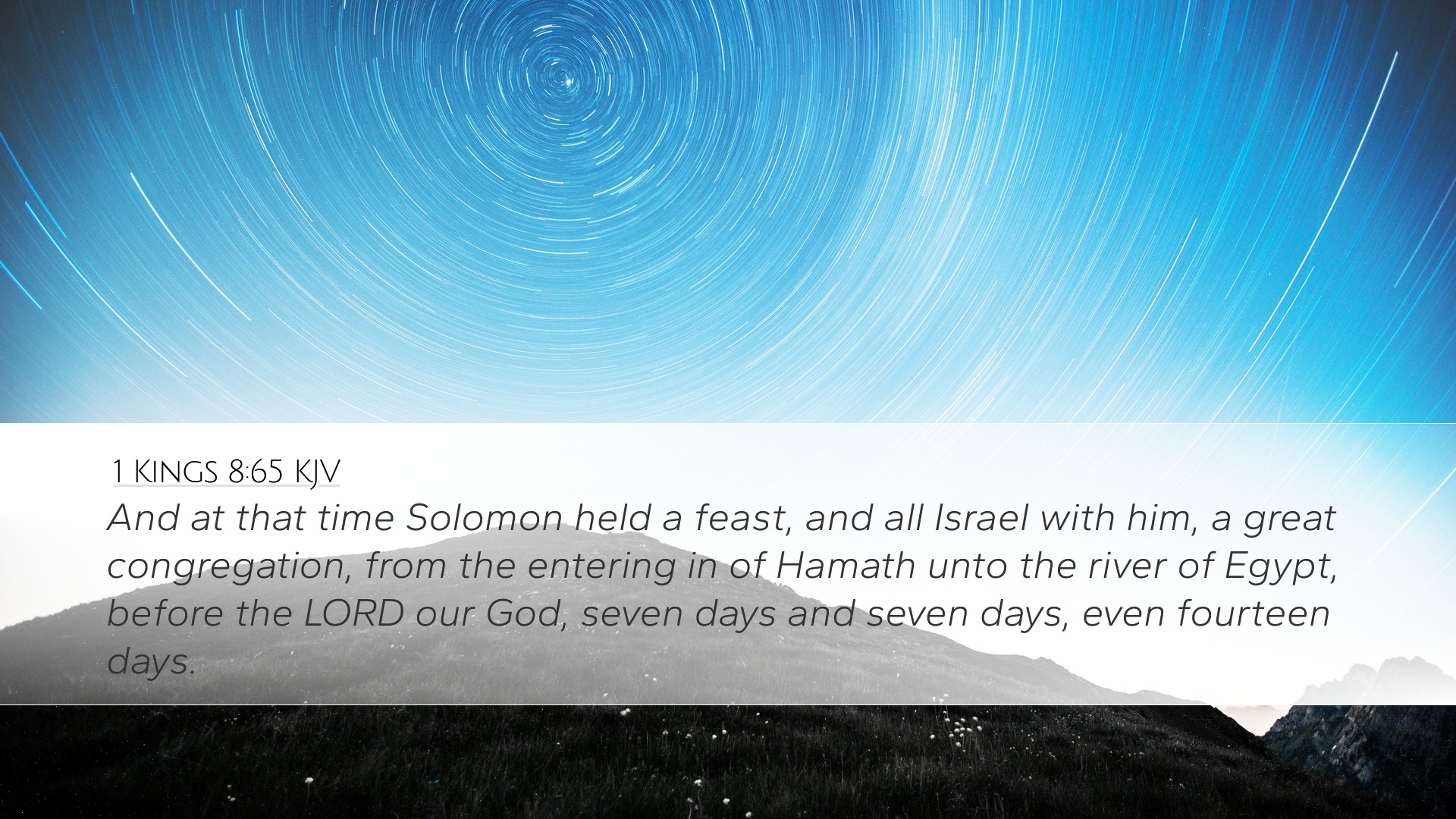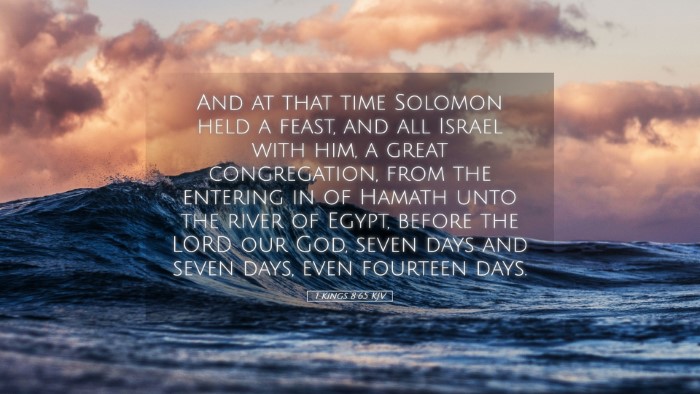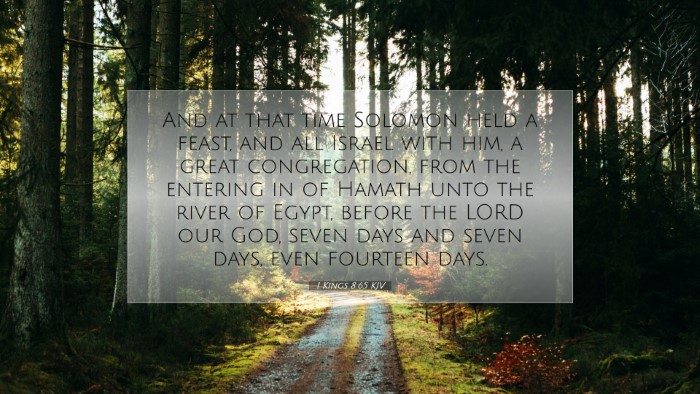Commentary on 1 Kings 8:65
Verse: "And at that time Solomon held a feast, and all Israel with him, a great congregation, from the entering in of Hamath unto the river of Egypt, before the LORD our God, seven days and seven days, even fourteen days." (1 Kings 8:65, KJV)
Contextual Background
1 Kings 8 narrates the significant event of the dedication of the temple built by Solomon. This momentous occasion marks the fulfillment of God’s promise to David and the culmination of Solomon's efforts to establish a permanent dwelling for the Ark of the Covenant. Solomon’s actions and the celebration that follows are indicative of Israel’s commitment to the covenant and their acknowledgment of God’s presence among them.
Exegetical Insights
Matthew Henry's Commentary: Henry points out that the dedication of the temple was not merely a ceremonial act; it was a time of solemnity where the people recognized their relationship with God. The feast signifies joy and unity among the people as they come together before the LORD. The extended duration of the celebration, lasting fourteen days, underscores the importance of the occasion and the divine presence accepted by the nation.
Albert Barnes' Notes: Barnes emphasizes that this feast was a public and national observance, reflecting the nation's collective joy. The gathering of people from different regions (from Hamath to the river of Egypt) demonstrates the unity of Israel under Solomon’s reign. Barnes further notes that such a feast serves to strengthen community ties and reinforce the nation’s identity centered around worship and gratitude to God.
Adam Clarke's Commentary: Clarke provides insights into the cultural significance of such gatherings in the ancient Near East. He draws attention to how religious feasts often played a crucial role in societal cohesion. Clarke notes how the invitation extended to all of Israel highlights the inclusiveness of the celebration, which invites each individual to partake in acknowledging God’s greatness and favor upon Israel as a nation.
Theological Implications
The act of holding a feast in alignment with the dedication signifies more than mere tradition; it embodies the theological truth of community and God’s covenant. The unity in worship during the feast articulates a broader narrative of belonging and divine providence. This moment establishes a pattern for future generations of Israel, attesting to their covenantal relationship with God.
Symbolism of the Feast
- Joy and Celebration: The exuberance of the feast symbolizes the joy of the people in recognizing God’s faithfulness and presence.
- Covenantal Importance: This event solidifies the ongoing covenant established with the forefathers, reminding Israel of their obligations and the faithfulness of their God.
- National Identity: The gathering signifies a pivotal moment of unity, where individuals from various regions come together to worship the same God, reinforcing their national identity.
- Divine Presence: The temple’s dedication in conjunction with the feast symbolizes God’s choice of dwelling among His people, highlighting His accessibility to them.
Pastoral Reflections
For pastors and church leaders, this passage can serve as a foundation for discussing themes of community worship. The importance of gathering as a body of believers is essential, and the celebration of God’s goodness should be a primary focus within church activities. It is crucial to encourage congregations to create opportunities for collective worship and to remember their identity as a community united in God’s love.
Conclusion
1 Kings 8:65 offers rich insights into the life of Israel during a significant moment in its history. Through the lens of public domain commentaries, we glean the theological significance of the feast, the embodiment of communal worship, and the enduring covenantal relationship between God and His people. This passage serves as an invitation for all believers today to gather in joy and gratitude before the Lord, recognizing His presence and provision in their lives.


